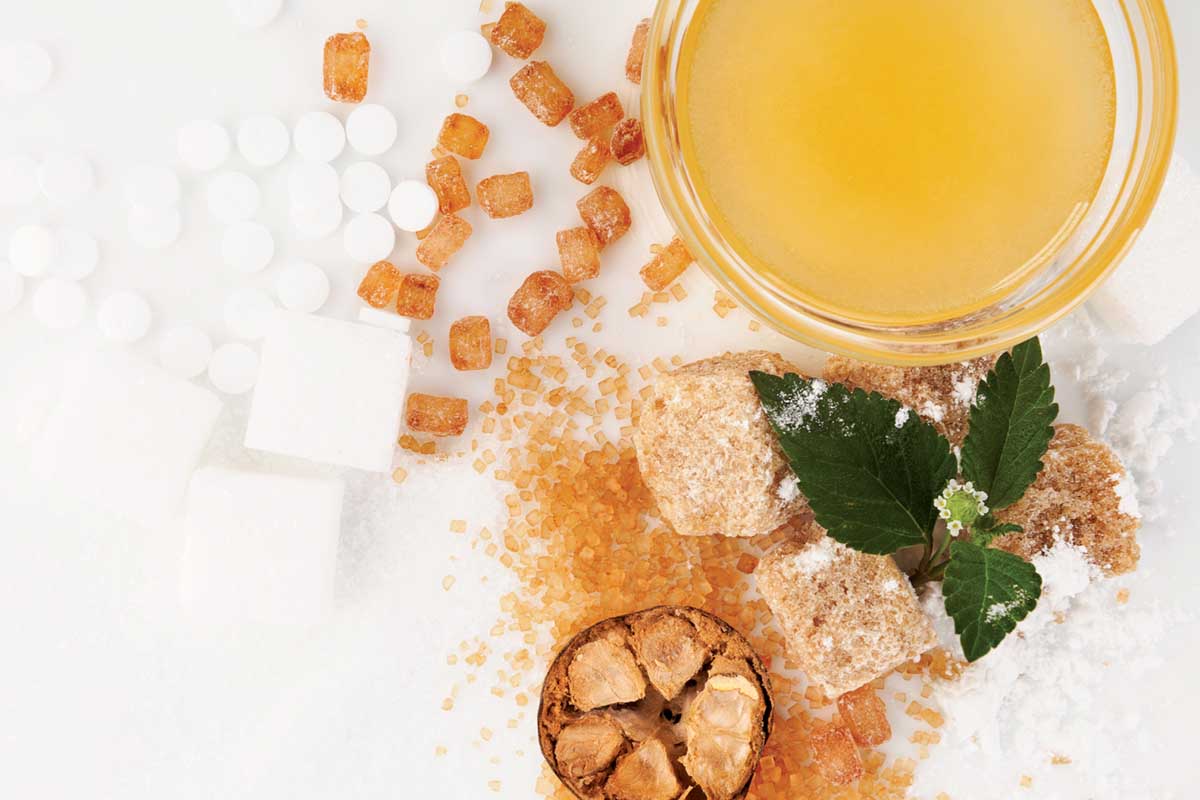Keep it naturally sweet with monk fruit
In search of a minimally processed sugar substitute? Get to know monk fruit sweetener, an all-natural plant extract with no discernible aftertaste.
Monk fruits, which were first cultivated in 13th-century southeast China, are small melons named after the Buddhist monks who grew them. The extract is known for being intensely sweet—up to 250 times more than regular sugar. The concentrate derives its sweetness from compounds called mogrosides, which are found in the juice of the fruit. Those with sweet tooths can rejoice: in spite of its sugary taste, eating monk fruit extract does not cause cavities.
While research on the health effects of monk fruit extract is still in its early stages, some of the benefits of mogrosides include their function as a prebiotic (also known as a source of food for the microbiome living in your gut), their anti-inflammatory properties, and the fact that they don’t affect blood sugar levels—making monk fruit an appropriate choice for individuals with diabetes.
Try the soft workout approach for pain-free gains
Whether you find yourself struggling to maintain a challenging fitness routine or you’re feeling the wear-and-tear of high-impact training, the slow workout movement will appeal to anyone interested in low-impact and low-intensity fitness and its relationship with the mind-body connection.
When it comes to working out the soft way, choose low-impact exercises such as walking, cycling, swimming, tai-chi, yoga, and Pilates. Low-intensity sports are also considered soft workouts—yet another good reason to sign up for your local pickleball, bocce ball, or ping-pong league.
The shift towards slow and approachable fitness activities is still relatively new. As recently as 2023, attitudes towards fitness have shifted towards quality of life and emotional satisfaction. Supporting these sentiments, the movements included under the slow workout banner have been shown to reduce the risk of injury while improving consistency.
Use a konjac sponge for baby-soft skin
Gently and effectively exfoliate your skin using a natural sponge made from konjac, a fibrous, porous root vegetable grown in Japan, China, and Korea. Konjac sponges are completely plant-based and sustainable thanks to the fact that they’re biodegradable—a single sponge can be used for up to six weeks before it’s ready to be composted.
Your konjac sponge can be used from head-to-toe; simply rinse with cool water (being careful not to wring the sponge to prevent tearing) and hang to dry after using. Since konjac is naturally very firm, it needs to be soaked in warm water to soften before being used on the skin.
Fans of konjac swear by the sponge’s ability to exfoliate, remove makeup and sunscreen, and soothe irritated skin. Research has also found that konjac sponge has considerable wound-healing abilities thanks to its impressive water-absorbing and retention properties.
Soothe your scalp and your tresses with CBD
Shampoo and conditioner are some of the latest self-care products to receive the CBD treatment thanks to the potential anti-inflammatory mechanisms of added cannabidiol. As the market for beauty products containing CBD continues to expand, do the health claims that accompany the formulation stack up against the science?
Research on topical CBD application is still in its infancy, but a handful of small studies on the compound’s effectiveness have found that it may improve itchy scalp as a result of psoriasis and allergic contact dermatitis, as well as encourage hair growth (although scientists speculate this could be due to the naturally-occurring vitamin E found in CBD oil).
When trying a CBD-infused shampoo or conditioner for the first time (and any other new topically applied product), always conduct a patch test on an inconspicuous area 24 hours before use.
